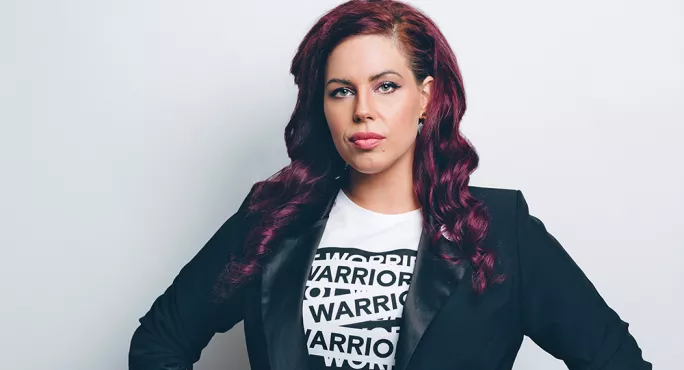‘Three criticisms of sex education - and why they’re wrong’

On Monday, the government was obliged to debate a parliamentary petition that had garnered more than 100,000 signatures, demanding that parents retain the right to remove their children from sex and relationships education (SRE) and PSHE lessons.
The petition followed the updating of guidance from the Department of Education. It’s been announced that by 2020 it will be compulsory to learn about health education and relationships education in primary and compulsory to learn about health education and sex and relationships education in secondary.
Cue my phone ringing off the hook with invitations to do media interviews. Having accepted a handful, here are the three most common objections to the notion of compulsory sex, relationship and mental health education and why they’re wrong:
1. Aren’t they too young to worry about ....x?
This is used generally in relation to mental health and same-sex relationships.
The former belief is predicated on a misunderstanding of the aims and purpose of mental health education. It is not - or at least should not be - restricted purely to awareness-raising around mental illness. Just like its physical equivalent, we all have a status of mental health from birth and there are things we need to be taught in order understand and nurture it.
Part of this is giving children a means of communicating emotional states. In one primary school I visit, for example, they give young children jars of glitter and ask them to shake them up and down as a metaphor for what happens in the brain when they’re angry. The children are able to recognise when they’re getting “glitter brain” and can communicate this to their peers and teachers without fear of judgement, allowing the situation to be nipped in the bud.
When it comes to same-sex relationships, it’s interesting (in a disturbing way) how many people think of them as somehow inherently sexual, in a way heterosexual partnerships are not. Most schools now have several pupils with two mums or two dads. It’s important for all children to be exposed to representation that reflects this, in the same cartoon-character, age-appropriate way heterosexual parents are.
The unrelenting focus on heterosexuality might also explain the complete absence of acknowledgement of female sexuality, historically, in secondary sex ed. “Men have erections, women have periods” was very much the message when I was at school - which might explain why a school friend of mine was recently scandalised when her primary aged child was taught what a clitoris is. No such objections for her learning about penises.
Similarly, sex education at the age of 4 is generally restricted to a “pants are private” message and to helping children understand consent and that they must tell if someone touches them inappropriately. I think we can all agree that they’re never too young for that.
2. This should be taught by parents at home
In my experience, this argument is made by liberal, middle-class parents who have a “nothing is off limits” approach to discussions in the home. They forget that not every home is like theirs and education must protect the most vulnerable.
They also fail to acknowledge the role that their child might play in, for example, reporting a friend who is in danger of FGM because something which would otherwise never affect them had been put on their radar.
Furthermore, whatever your personal religious or other views, your children have to live in and navigate British society. The SRE curriculum reflects British values, including diversity and tolerance - the home is for opinions, school is for reflecting the fact that we live in a diverse society encapsulating many different ways of being human. Which brings me to....
3. The transgender Issue
Make no mistake, despite efforts at whataboutery and multilayering of the SRE debate, this ultimately comes down to fear and objection over children being taught about transgender people. That was what was screamed most loudly from tabloid headlines and cited most frequently by concerned parents.
The problem is, as far as I can see, a widely held but completely erroneous belief that trans and non-binary people are a “new” ‘fad’ and in direct opposition to the work feminism has done to challenge gender stereotypes.
Trans and non-binary people have existed for as long as humankind and, just like with sexuality, you can’t “talk someone into” a different gender.
We’re just at the beginning of our journey towards accepting trans people in British society and, as I wrote a little over a year ago, the controversy is depressingly familiar.
Natasha Devon MBE is the former government mental health champion. She is a writer and campaigner and visits an average of three schools per week all over the UK. She tweets @_natashadevon. Find out more about her work here
You need a Tes subscription to read this article
Subscribe now to read this article and get other subscriber-only content:
- Unlimited access to all Tes magazine content
- Exclusive subscriber-only stories
- Award-winning email newsletters
Already a subscriber? Log in
You need a subscription to read this article
Subscribe now to read this article and get other subscriber-only content, including:
- Unlimited access to all Tes magazine content
- Exclusive subscriber-only stories
- Award-winning email newsletters
topics in this article




